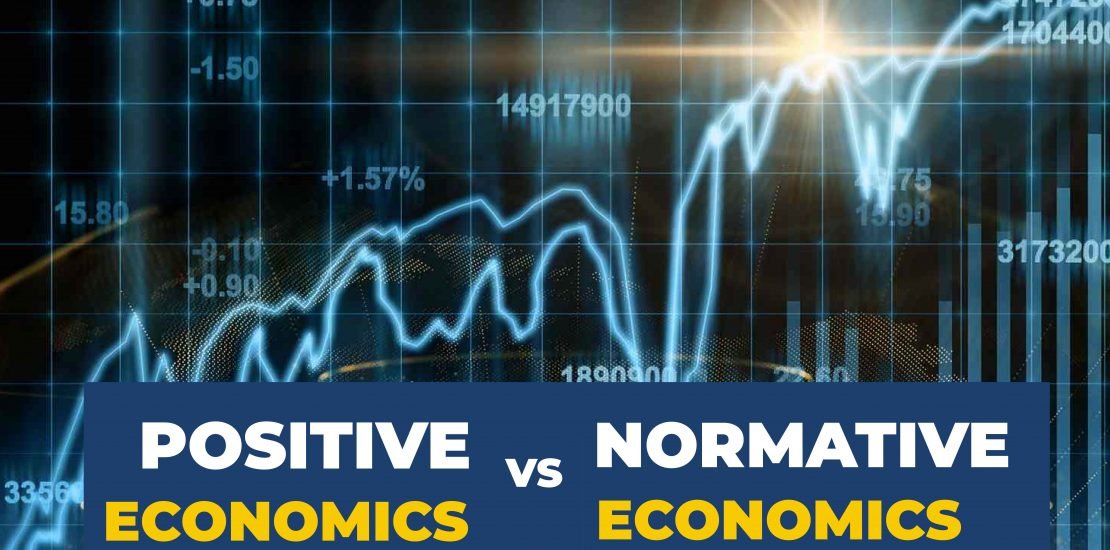- February 14, 2023
- Posted by: mararting
- Category: Economics

Positive versus normative economics: An overview
Positive economics and normative economics are the two standard branches of modern economics. Positive economics describes and explains various economic phenomena, while normative economics focuses on the value of economic justice or how the economy should be.
Simply put, positive economics is known as the “what” branch of economics. Normative economics, on the other hand, is considered as a branch of economics that attempts to determine the desirability of various economic programs and conditions by asking the question of what “should” or “should” be. .
Positive Economy
Positive economics is a branch of economics that focuses on describing, quantifying, and explaining economic developments, expectations, and related phenomena. It is based on an objective analysis of data, relevant facts and relevant metrics. It attempts to establish any causal relationship or behavioral association that can help verify and test the development of economic theories.
Positive economics is objective and fact-based where the statements are precise, descriptive, and measurable. These claims can be compared with hard evidence or historical examples. There’s no such thing as a deal or a disapproval in positive economics.
Here’s an example of a positive economic statement: “Government-provided health care increases government spending.” This statement is factual and does not involve any value judgment. Its value can be proved (or disproved) by studying medical costs where the government provides healthcare.
Normative economics
Normative economics focuses on value-based assessments that improve economic development, investment projects, and wealth distribution. Its purpose is to summarize how desirable (or undesirable) various economic developments, situations and programs are by asking what or what will happen.
Normative economics is subjective and value-based, which derives from a personal point of view or opinion regarding the decision-making process. The claims of this type of economy are rigid and prescriptive in nature. They often sound political, which is why this branch of economics is also known as the “should be” or “should be” economy.
An example of a standard economic statement is: “Governments should provide basic health care to all citizens. As you can see from this statement, it is based on values, rooted in personal opinion, and fulfills the requirement of what “should” be.
Special Considerations
A common observation is that public policy debates usually involve normative economic statements. There is a higher level of disagreement in such arguments because neither party can conclusively prove their veracity.
Normative statements, though general and subjective in nature, serve as necessary channels for unconventional thinking. Opinions like these can form the basis for necessary changes that can completely transform a particular project.
But normative economics cannot be the sole basis for major economic decisions. Positive economics replaces an objective perspective focused on facts, causes and consequences. In conjunction with positive economics, normative economics helps establish, generate, and implement new ideas and theories about various economic goals and prospects.
A clear understanding of the difference between positive and normative economics leads to better policymaking when policies are based on a balanced combination of facts (positive economics) and opinion (normative economics). There is a possibility. But many policies on issues ranging from international trade to welfare are based, at least in part, on normative economics.
What Are Examples Of Normative Economics?
An economic agenda that promotes some kind of social or political agenda can be called normative. For example, an argument for raising the minimum wage in favor of workers would be an example of a normative argument. Because this argument is based on subjective values. However, the claim that raising the minimum wage leads to an increase in GDP is considered positive economics.
What is a positive theoretical statement?
A positive statement is one that allows you to make hypotheses that can be tested empirically. Normative statements, by contrast, are more likely to be based on opinion or subjective values.
Is positive economics better than prescriptive economics?
Both types have strengths, and both have their own weaknesses. The synthesis of positive and prescriptive economic statements is often required to create policies for countries, regions, sectors, institutions, or companies.
